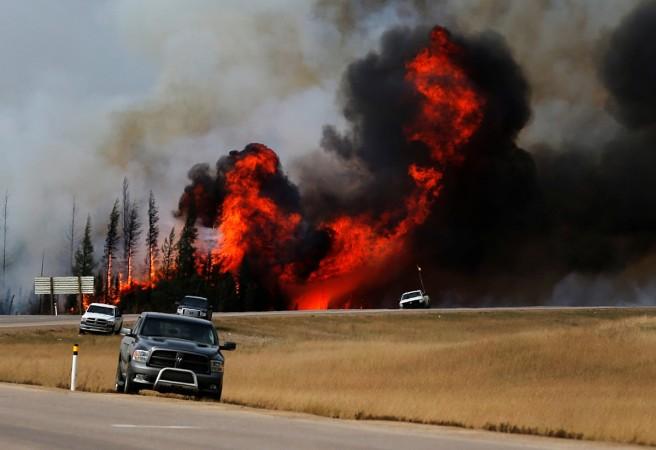
The wildfire that started near Fort McMurray town in Canadian province of Alberta on May 1 is expected to go on for months before it could be brought under control, officials have reportedly said. The blaze has apparently spread faster, resulting in the evacuation of more than 100,000 people.
Officials in Alberta have said residents who evacuated their homes might not be able to return for another two months as the fire was spreading northeast and Fort McMurray town was still not safe. The officials have asked the people who have taken shelter in camps in the nearby towns to move to Calgary for better health and social services.
"Within the community itself I expect over the next coming month or two that they're going to be able to get a very good handle on the fire situation," Reuters quoted Alberta wildfire prevention chief Chad Morrison as saying.
The blaze might head towards Saskatchewan. "In no way is this fire under control," NBC News quoted Alberta Premier Rachel Notley as saying.
Morrison told NBC the wildfire would go on for "a number of months" and nothing would stop it from spreading. The weather conditions in Alberta are still extremely dry and windy, he said.
"We expect to be out fighting in the forest areas for months to come. No size of fire break will stop this fire from continuing to spread. What it will be will be the break in the weather," Morrison said.
The wildfire has already destroyed 200,000 hectares (494,000 acres) of the land, which is equal to the area Mexico city is spread on, reported Reuters, citing an Alberta government statement issued on Saturday night. The blaze has reportedly burnt down over 1,600 homes and other buildings.
According to reports, this wildfire is expected to turn into the costliest natural disaster in the history of Canada, with insurance losses going over C$9 billion ($7 billion).
"Since Fort McMurray is nearly 10 times the size of Slave Lake, a disaster of the same magnitude impacting nearly all of Fort McMurray could potentially lead to C$9 billion in insured industry losses," BMO Capital Markets analyst Tom MacKinnon told Reuters.
No loss of life has been reported from the affected region. More than 500 firefighters have been trying to bring the fire under control with the help of 15 helicopters, 14 air tankers and 88 other equipment.

















